We have developed a large number of software systems, for companies, hospitals or as a result of our R&D activities within mora than 15 European Commission projects and around 20 national projects.

Strategic Health Initiatives for Effective Disease Prevention (SHIELD) launches to transform non-communicable disease prevention in Europe. With an ambitious mission to revolutionize personalized prevention strategies for cardiovascular disease (CVD) and diabetes, SHIELD aims to significantly reduce the global burden of non-communicable diseases (NCDs). More...

"Bridging Centers, Enhancing Knowledge: A Research Protocol on Federated Learning for Dental Implant Classification and Pathology Identification in Periapical Radiographs" aims to create a reliable and standardized method for implant detection and classification by proposing a Federated Learning (FL) framework. Thus, by collaborating with multiple dental centers and encompassing various implant brands, our research seeks to develop an effective AI-driven approach to enhance diagnostic precision in clinical settings. More...

TriNetX is a platform to enable the trustworthy re-use of Electronic Health Records (EHR) data for clinical research, evolution in Eurepo from the InSite Platform. The collaboration between clinicians and researchers is facilitated, aiming to maximise the output of clinical research through new technology. More...

The completion of the Human Genome Project sparked the development of many new tools for today’s biomedical researcher to use in finding the mechanism behind disease. While the goal is clear, the path to such discoveries has been fraught with roadblocks in terms of technical, scientific, and sociological challenges. More...

Achieving semantic interoperability among EHR and clinical trial systems is at the core of the project, as it is the basis for enabling the development of many software services and tools. The goal is to enable seamless, secure, scalable and consistent linkage of healthcare information residing in EHR systems with information in clinical research information systems More...
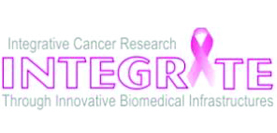
Moving away from empirical medicine, towards evidence-based personalized care has the potential to both dramatically improve patient outcome and to reduce costs. INTEGRATE aims to deliver to the biomedical community dynamic infrastructure components; tools for sharing and collaboration;standards-based data models; More...
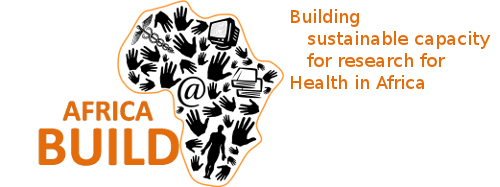
The main objective of the project is the creation of centres of excellence to promote health research, education and practice in Africa. The creation of these centres will be based on four main pillars: e-learning, knowledge sharing, "know-how" and information technologies. More...

The goal of the Dicode project is to facilitate and augment collaboration and decision making in data-intensive and cognitively-complex settings. To do so, it will exploit and build on the most prominent high-performance computing paradigms and large data processing technologies to meaningfully search, analyze and aggregate data existing in diverse, extremely large, and rapidly evolving sources. More...

There is a great potential for synergy between Bioinformatics (BI) and Medical Informatics (MI) with a view on continuity and individualisation of healthcare, so that the benefits of the human genome elucidation can reach the population, but that a collaborative effort between the two disciplines is needed to bridge the current gap between them. More...
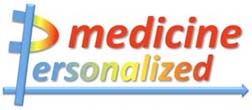
From data sharing and integration via VPH models to personalized medicine’ is a 4-year Integrated Project co-funded under the European Community’s 7th Framework Programme aiming at developing new tools, IT infrastructure and VPH models to accelerate personalized medicine for the benefit of the patient. More...

INBIOMED is a Thematic Network for Cooperative Research in Biomedical Informatics. Storage, integration, and medical, genetic, epidemologic and image oriented data analysis aimed at pathology research. More...

The main objective of this web application is to catalogue existing genotype and phenotype data resources and to map the projections for the future development of these resources world-wide. More...
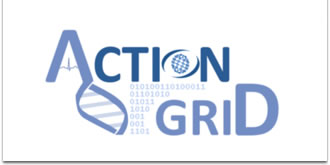
ACTION Grid is one of the first projects funded by the European Commission about grid technologies, nanoinformatics and biomedical informatics research. One of the objectives is to create a common infrastructure in Europe and to promote the research between hospitals, universities, and another public organizations. More...
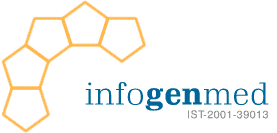
INFOGENMED aims to build a virtual laboratory for accessing and integrate genetic and medical information for health applications. Resorting to this integrated environment, clinicians are able to access and relate diseases data already available in the Internet, scattered along multiple databases. More...

The main purpose of “Tratamiento 2.0” is to create a generic middleware platform using Ambient Intelligence, ubiquitous computing, expert systems and AI, Augmented Reality, Human Machine Interfaces, etc. More...

The main goal of the project is to promote the investigation and create a research community among Latin America and the Iberian Peninsula countries. Exchanging knowledge and techniques using collaborative methods is a great advantage in the participation and development in different projects. More...

Nanoinformatics
Automated method to generate repositories of bionanoinformatics resources and toxic secondary effects of nanoparticles and classify them for their application in clinical trials in nanomedicine. During the last years Web-based repositories of bioinformatics resources have been built to facilitate their access to researchers of the area. More...

OntoMineBase
OntoMineBase project has two main goals: To standardize database information in order to improve the processes of Data Mining; To research and develop new methods of information retrieval. Both suggest the use of ontologies for the search process improvement, integration, More...
